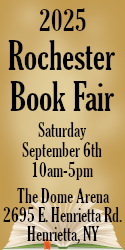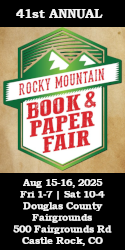Going, Going...Groan
There are more than a few individuals who find magic in poetry, souls who can find their inner mysteries thrilled by a string of words conveying either rapture or profound sorrow. These are the people who can delve into a sonnet and bring forth its glory and, perhaps, touch the face of God…
I am not one of them.
The poetry gene is absent in my genomic makeup. It is not something of which I am proud: I simply recognize my limitations.
For those who know me, therefore, they would be surprised that several years ago I found myself in a heated auction bidding on a collection of poems by Rupert Brooke. Brooke (1887-1915) was literally the hearththrob of England during his painfully brief life. He was an uncommonly handsome young man and those looks, coupled with his intellect, gave him entre to an extraordinary array of luminaries in England, including Winston Spenser Churchill. If somewhat lost in life, he found his passion when the First World War broke out and he demanded a piece of that awful action and found himself in Cairo in 1915, anticipating (incorrectly, alas) his role in the sacking of Constantinople. He wondered “will the sea be polyphloisbic” and queried if he would help himself to mosaics from walls and floors of Hagia Sophia. He told friends that he had never been happier and, with curious anticipation, crafted one of his most famous lines: “If I should die, think only this of me; that there's some corner of a foreign field that is for ever England.” And die he did, of fever, in April 1915: he was buried on a Greek island having never trundled along the fabled streets of Constantinople…
I understood his passion for Turkey, however. Perhaps inspired by a college seminar on World War One, I made a point of visiting the battlefield of Gallipoli on several occasions, once for 10 days. I even uncovered two skeletons at one remote battlefield and relayed that information to the British war graves commissioner who lived at Gallipoli. With a groan, he asked me to forget my discovery: if I persisted, it would mean he would have the impossible task of trying to identify the remains (in the event they were the bones of Allied soldiers.) I appreciated his dilemma and dropped the matter (to his intense relief).
I never forgot about Gallipoli, however, and Brooke's never fulfilled passion for it. When I ran across a volume of his poems at an auction house, I was mildly interested. What was tipped in, though, truly excited me: it was a typed copy of the last poem Brooke wrote only days before he died. This was not simply something some other admirer had, inexplicably, decided to copy. This was clearly a sheet of paper tied directly to Brooke himself, a discovery that left me nearly breathless.
To my dismay, another bidder had obviously stumbled upon the same page of poetry and was equally anxious to buy it. A book that was otherwise estimated at around $100 eventually became mine…for $1800. And I was extremely pleased. For two weeks.
Within those two weeks, I contacted a librarian at Kings College, Cambridge, where Brooke had studied before the Great War. With almost condescending generosity, I offered to provide him, gratis, a Xerox copy of Brooke's final poem, an offer he eagerly accepted. He then dropped his bombshell: Brooke never typed his poems: they were always hand-written and then typed up by one of his secretaries…At best, I had an “original” copy…In other words, I had a great deal of nothing and had paid $1800 for the privilege. I had, in other words, suffered a severe bout of auction fever and had a sharply reduced checking account as proof of that disease. Call it auction fever, auctionitis or plain stupidity, it will strike virtually every book-dealer on occasion. And also nations…
In 1963, Henry M. Blackmer II settled in Athens, Greece. Born in 1927, he was a successful banker from Denver who decided, for reasons that seem obscure, to make Greece his new home. During the next quarter of a century, Blackmer put together an astonishing library of nearly 2000 books pertaining to Greece and the Levant, a collection covering a period from 1475 to 1900. When he died in 1988, his family contacted Sotheby's to arrange for what would become one of the most fabulous auctions on the eastern Mediterranean ever recorded. Taking its duties seriously, Sotheby's arranged for two publications, both in hardback and beautifully presented. One volume was simply the catalogue for the auction. They also arranged for Leonora Navari to compile a more formal bibliography of the collection. Published by Maggs Brothers (ah, but who else?), the bibliography was entitled Greece and the Levant. The Catalogue of the Henry Myron Blackmer Collection of Books and Manuscripts and limited to 300 copies each selling for 150 pounds sterling (circa $225 at the time – a copy in 2011 now goes for $2000 to $3000). Sotheby's held the auction between 11 and 13 October 1989. What made the auction even more impressive than its contents was the type of bidders it attracted. Not only were the usual bibliophiles and book dealers drawn to the sale but also representatives from three countries: Greece, Turkey and Cyprus. With national agendas now flooding the auction floor, the auction was guaranteed to be a bibliophilic bloodbath. And so it was. By the time the last hammer sounded, the collection was sold for well over $8,000,000, several times original estimates. To some degree, this reflected the scarcity of some books. In more than a few cases, however, national pride fueled excessively high bidding. An acquaintance of mine was there and recalled vividly how he approached an under-bidder for one of the lots, whose final 10,000 pound sterling offer proved insufficient. He offered the disappointed under-bidder the exact same book for 500 pounds sterling. The would-be-buyer rejected the offer, however – he had been told to get the Blackmer copy and nothing else would suffice.
Although perhaps not as elegant as the Blackmer auction of 1989, Sotheby's again scored another coup when it was selected to auction off the library of Peter Hopkirk in 1998. A noted journalist, who had worked inter alia for the London Times for 25 years, Hopkirk was the consummate bibliophile. His career took him to scores of countries and he used these opportunities to visit every used book store possible starting in the 1950s. Hopkirk was also discerning regarding the historical value of a given book and succeeded in obtaining scarce books with notations by the author. That collection of more than 1000 volumes also served as the basis for his own writings. The author of a half dozen plus books on Central Asia and the Great Game, Hopkirk had a talent for transforming mundane facts into riveting prose. He was also an exceedingly determined collector. In one case, a book catalogue arrived in the morning post (yes, this was years ago) and he noted a book he wanted desperately. He immediately called the bookseller's store before it opened and, quite deliberately, tied the telephone up (or down?) for an hour to ensure that no one else would get the book in question. It worked.
More through luck than skill, I managed to contact Hopkirk early in 1998 and met with him over coffee for an hour. He was exceedingly gracious and readily signed one of his books for me (yes, I was shameless…and remain so). While the conversation drifted between several topics (especially the Kurds), I eventually had to ask why he had decided to place his remarkable library on the block. The answer was disarmingly simple: the demands of his insurance company. Because he was sitting on a million pounds sterling collection, Hopkirk’s insurance company demanded that he put in place an annoying array of security precautions (barred windows, window and door alarms, SAS snipers...). Facing such an intrusive set of precautions, he had decided to simply liquidate the problem. He was also alarmed at what befell a fellow bibliophile associate of his. While away on holiday, thieves had arrived in an apparently legitimate-looking moving van, complete with a “crew” fitted with uniforms. They broke into the house and carefully packed up the man's wonderful book collection whilst neighbors looked on, apparently convinced that their neighbor was moving to a new residence.
Since I was slated to leave London several months before the auction, I visited Sotheby's and (again shamelessly) ingratiated myself with the principal cataloguer for the collection. My efforts were so successful that he used two of my sentences in preparing the description of one book. I also placed hopeless bids on a half dozen books.
When the auction took place, it generated astonishing excitement in view of both the quality and quantity of books pertaining to Central Asia and the Middle East. That excitement was also reflected in the prices realized. Books that today are available for, say, $1000, brought three times that figure. Even if the prices were often unrealistic, for many buyers it remained a remarkable event that was worth the extra expense. And I was as guilty as any of them (and absolutely delighted with the single book I landed: why pay $125 for E. Sloane’s book, Through Mesopotamia and Kurdistan in Disguise, when I was able to get the Hopkirk copy for $450? It was a bargain at half the price…
It does not require a singular auction, however, to feed a frenzy of auction madness: hatred is a good enough motive in some cases. A friend of mine, Peter Burridge of Quest Books (an excellent source of scarce items on Byzantium in particular), had the thoroughly delightful experience of participating in an auction several years ago at Bloomsbury (or was it Bonhams? It matters not). The book in question was objectively worth around 1800 pounds sterling (around $2700) so he stopped bidding at 1000 pounds. He was, he explained, being sensible. Sensibility, however, did not seem to influence two other dealers at the sale who were bidding on the same book. What influenced them most was not the book: it was the fact that they simply despised each other (and, knowing one of the dealers at that auction, I can readily understand why.) The bidding went on….and on………….and on. The “winner” got the book for 18,000 pounds sterling (circa $27,000), to the incredible delight of the under-bidder (not to mention the auction house and the book’s former owner.) Caveat emptor.
Almost invariably, on the other hand, auction houses have their own peculiarities. At one point in my life, I lived in Ireland. There was but one book auction house, Mealy’s, and they held perhaps three or so sales each year. While other auction houses normally organized their lots according to some order or another (alphabetical, non-fiction, children's books, travel, etc), Mealy’s had adopted an entirely different strategy. Their catalogues, usually listing around 1000 lots, were completely random, as though the cataloguer had simply compiled a list based upon whatever book his hand touched. Not surprisingly, this made for enormously tedious reading. After three such auctions, I approached several dealers in Ireland (of whom there are remarkably few) and, in utter exasperation, asked if they understood the logic behind the cataloguing style. Their responses were uniform: it was designed (so to speak) in order to compel bidders to go through each and every lot, instead of concentrating on a given category that interested them or their clients. Perhaps it worked but I for one would have preferred a root canal procedure rather than going through their catalogue.
As a rule, I often prefer to peruse the lots of an odd auction; i.e, an auction with a theme, say, of Americana but with a few odd titles tucked away in a section often described as “miscellaneous” or “varia”. Sometimes, this yields a treasure or three on the Middle East that, I hope, are ignored by others. That happened a few months ago when I scoured a catalogue devoted to sports, only to encounter a scarce book on a Saudi tribe. The book was estimated at between $80 and $120: it was worth around $600 to $700. After wasting two hours sitting amongst other bidders, “my” lot finally appeared and I was quick to place the first bid at $40, fairly confident the book would be mine for less than $100. And then came the second bid: $500. I had been, literally, hammered.
I will continue with my strategy since, on occasion, it works. In the interim, however, I continue to watch BBC reruns of “Lovejoy”.
Michael M. Pixley served for 22 years as a Foreign Service Officer in the U.S. Department of State, with 17 of those years overseas,primarily in Turkey and Iraq. He began his second career as a bookseller (Eastern Approaches Books, Annapolis MD) in 1999, specializing in the Middle East.


























